Camping in such a way that doesn’t end up in damage and destruction of the environment seems a no-brainer to me.
Most people hike or camp because they enjoy and value spending time outdoors. And many people have a sense of their environmental impact when heading outdoors.
But I’ve also learnt over the years that enjoying the outdoors responsibly is not a sentiment shared by all campers, and occasionally even hikers.
I’m by no means perfect but I’m passionate about a few specific outdoor ethics. So here’s a little beginner’s guide to responsible camping.
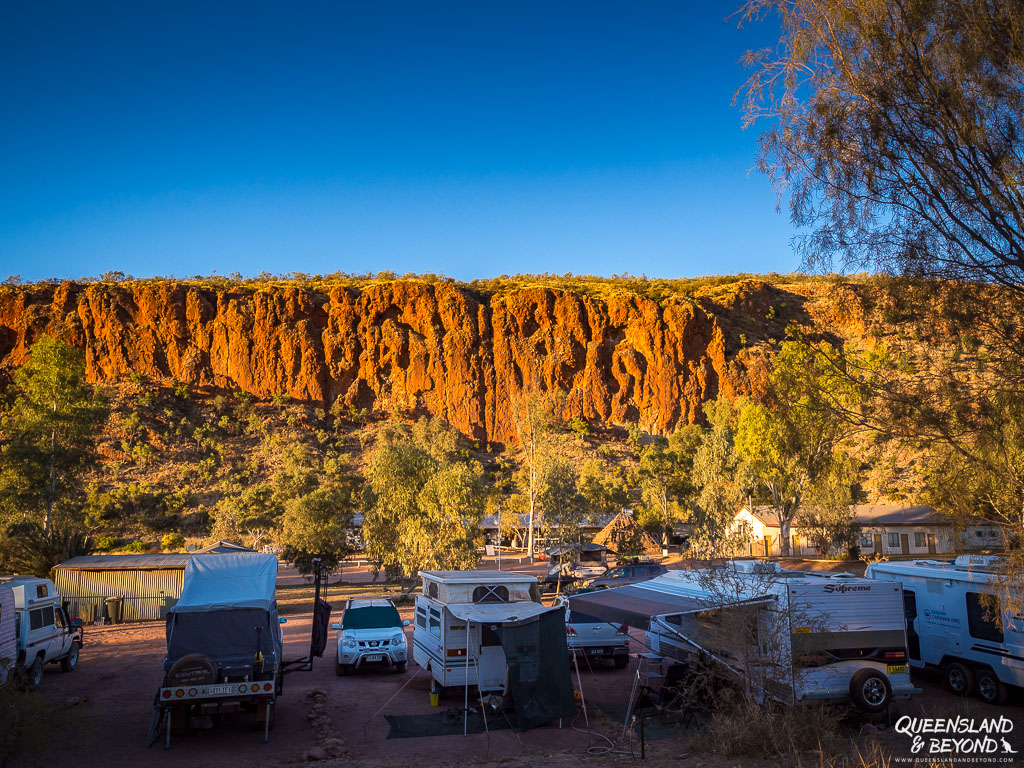
AUSTRALIA HAS GONE CAMPING
But why should we care about responsible camping? Simple: because Australia, quite literally, has gone camping and it’s impacting the environment.
Even before COVID-19 hit, camping and caravanning had become incredibly popular in Australia.
Back in 2019, the year when camping and caravanning became super popular again, 30% of trips to regional areas in Australia involved camping or caravanning. And overall, there are now 5.5 million more camping and caravanning trips taken than ten years ago!
And then in 2020, when COVID-19 made international travel impossible for most of us, camping holidays went through the roof. Even the caravan segment shifted from the ‘grey nomad’ crowd to more and more young families starting to hit to road in caravans.
So now that camping has become ubiquitous in Australia, and in states like Queensland where you can camp year round, leaving rubbish and other nasties is no longer the rare incident but a major problem, especially in popular spots like Noosa’s North Shore.
But it’s not just rubbish and lacking sense of who will actually clean up the mess, it’s also excessive noise, misbehaviour and overuse of camping areas that are a growing cause for concern.

A BEGINNER’S GUIDE TO RESPONSIBLE CAMPING
I’ve loved camping ever since moving to Australia more than twenty years ago. But I find it increasingly stressful because I never know what will await me at a campsite: Rubbish? Inconsiderate neighbours? Cramped sites?
My responsible camping guidelines are fairly common sense, and somewhat similar to the ‘leave no trace’ principles for outdoor recreation.
Don’t see them so much as rules but more as guiding principles that will allow all of us to enjoy the outdoors for years to come.
1. AVOID POPULAR AREAS
Popular areas are usually popular for a reason but the negative effect overuse has on the environment is a huge concern. With too many people visiting the same place, our enjoyment of these places is usually also curtailed.
So here are some, rather obvious, tips:
- Why not go somewhere different? Give a place a miss and find a national park, state forest or free camp you’ve never been to before.
- Avoid peak periods. We made the silly decision of going to Fraser Island over Christmas one year – never again. If you do want to explore popular spots, go during the week or outside school holidays if possible.
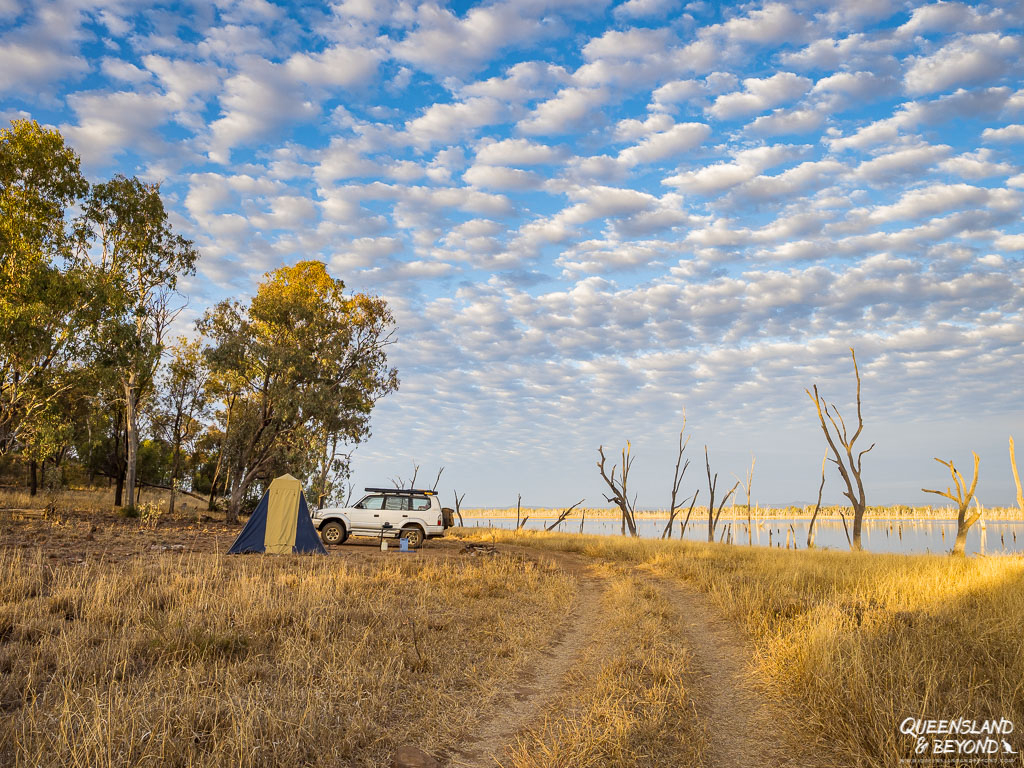
2. BE GENTLE ON THE ENVIRONMENT
This guideline is all about attitude and awareness.
Trampling through the bush can destroy plants, soft soil and other vegetation, and increase erosion. It’s not always avoidable but if you think about reducing your physical impact on your surroundings, you’re halfway there.
Here’s what this means practically:
- Set up camp in designated areas, or try to camp on harder ground when there’s no formal camping area. Avoid camping on soft soil or fragile vegetation.
- Stay on formed tracks when hiking, especially in popular areas.
- When hiking or camping in remote areas or the backcountry, dispere so you’re not creating new tracks or sites where they didn’t exist before.
- Don’t break branches off trees.
- Don’t tie tent ropes or rubbish bags to trees.
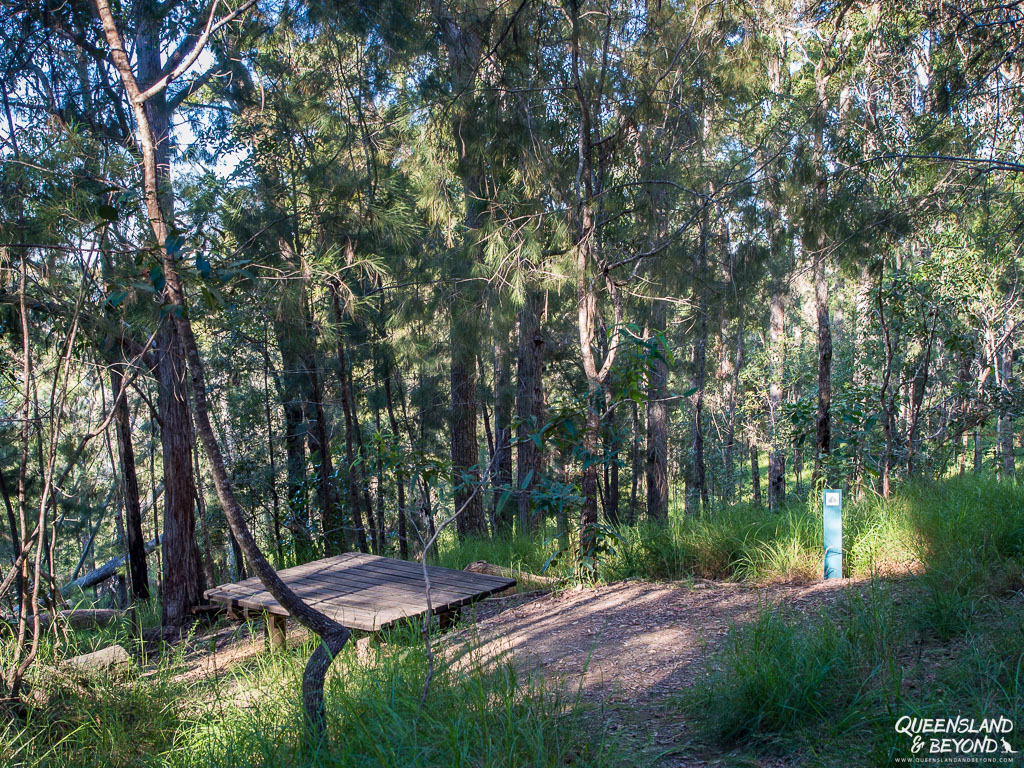
3. TAKE YOUR RUBBISH HOME
I’m sure this one doesn’t requires much explanation.
Don’t leave your rubbish when camping or hiking. None of it. Take it home and send it to landfill then (or compost / recycle what you can). That’s it.
Here are a few more tips:
- If something breaks while you’re camping (like your tent gets ripped into shreds by a storm), take the bits and pieces out of the national park or state forest, and dispose of it properly.
- Rubbish also includes food scraps and leftovers. Don’t leave them in fire pits or elsewhere in your campsite when you leave. It’s not only unattractive for other campers, this also encourages animals to become habituated and seek food where they shouldn’t.
- Minimise packaging before you leave home. This will make life a lot easier when you’re camping and have far less rubbish to take home (e.g. put biscuits in a container instead of leaving them in their plastic packaging).

4. DISPOSE OF WASTE RESPONSIBLY
So waste here includes your rubbish (take it home, see guideline #3), grey water (from dishes or washing) and toilet waste.
GREY WATER
Grey water includes any dirty water, like from washing the dishes or your face and hands, or brushing your teeth. Soaps can seep into soil, contaminate waterways and harm wildlife.
So ideally do the following:
- Minimise using soap, shampoo, toothpaste and dishwashing detergent, especially when there’s no easy way to get rid of the grey water.
- Use biodegradable soaps and dishwashing detergent (e.g. Sea to Summit’s Wilderness Wash). This is especially important when you’re hiking and camping overnight or in more fragile locations. We’ve used gritty sand in the past or just wiped dishes clean with a cloth on overnight hikes a) to avoid carrying detergent, and b) to reduce soaps getting into the soil. Quite often you can get away with nothing for a couple of days.
- When you’re using detergents, soaps or toothpaste, make sure it’s at least 50m away from waterways, and don’t go overboard with how much you use. I like bubbles but you really don’t need a lot of them when washing the dishes!
- Scatter your grey water and don’t keep pouring it on the same spot if you’re camping somewhere for a few days.
HUMAN WASTE
Ideally camp somewhere where there are toilets.
When beach camping or in more remote areas in Australia, toilets can be harder to find so either bring your own portable toilet (lots of options out there) or make sure you practise excellent toilet waste burying habits.
We have a very simple portable toilet (the one with just a basic seat and bio-degradable bags) that we use in remote locations but one of the first things I tend to check is if there’s a toilet at the campground or somewhere close by.
In the past, we’ve actually avoided camping at a couple of spots because there were no toilets nearby.
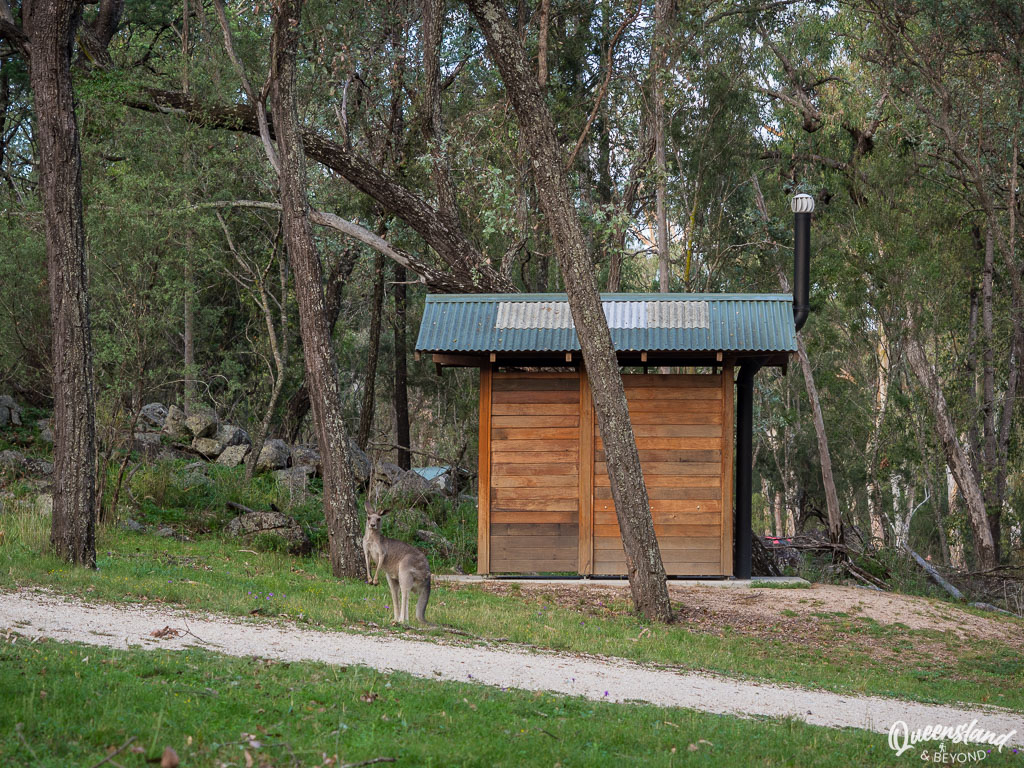
I’m comfortable with “bush toilets” but as I’m very aware of the environmental impact, I try and avoid having to bury toilet waste in the first place. If you do need to bury human waste, make sure you:
- Walk away from camping areas, walking tracks and at least 100m away from any waterway.
- Dig a hole with a shovel/trowel that’s at least 15cm deep (50cm if it’s sand).
- Cover the hole completely once you’re done.
- Don’t leave feminine hygiene products in the hole; bag it and take it out with your other rubbish.
If you have a portable toilet, don’t empty it in national parks or state forests. These toilets are very often composting toilets and not approved dump points.
5. PROTECT NATIVE WILDLIFE
I grew up with feeding ducks bread. Now I’m horrified that this was our normal back then.
Here are some tips on respecting native wildlife:
- Don’t touch or feed wildlife, no matter how cute or what instagram-worthy shot you might get. Feeding bananas or chocolate to kangaroos might seem fun but it’s not. It damages their guts and makes them ill. You also don’t know what disease an animal might be carrying.
- Feeding animals also gets them habituated and dependent on human food, which can make them aggressive and a nuisance in campgrounds or picnic areas.
- Store your food properly. Don’t leave food out or rubbish bags lying around campsites. Goannas, brush turkeys or mice can be incredibly quick at snatching food scraps (sadly, I speak from experience).
- When watching wildlife, give them space. You’re in their habitat and animals can get stressed if you get too close. Use binoculars and invest in a larger lens if you like taking wildlife photos.
- Leave your pets at home. Don’t bring dogs or cats into national parks in Australia. Some state forests allow dogs but check before you go.
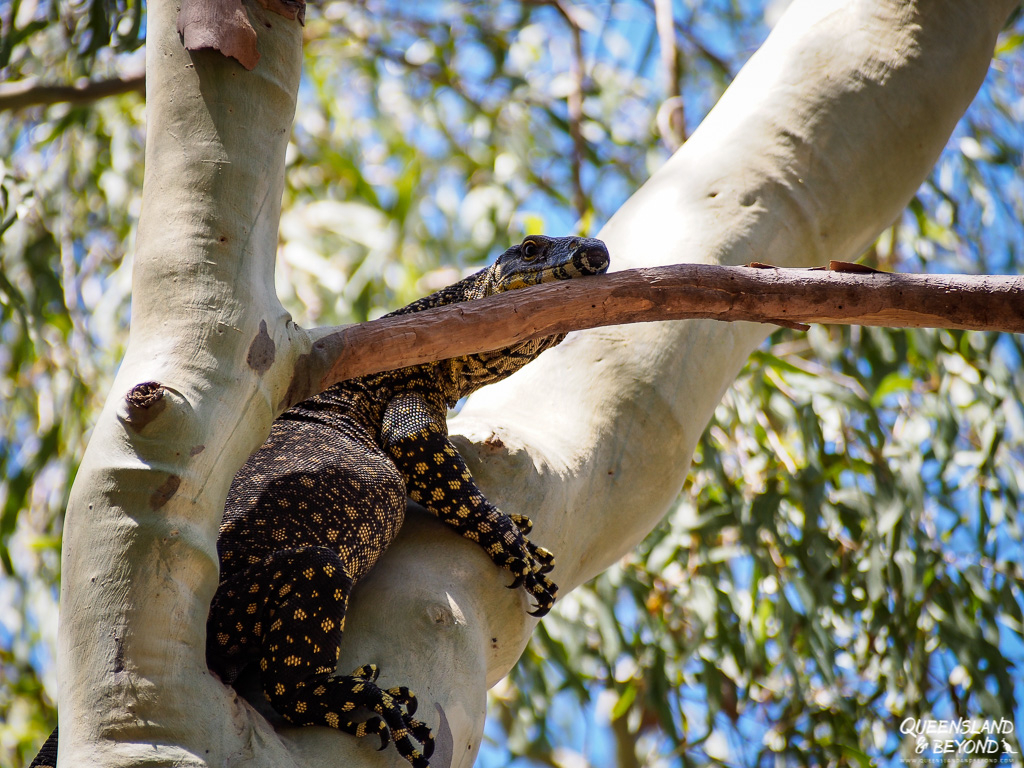
6. BE CONSIDERATE OF OTHERS
I really struggle with noise, especially when I’m outdoors. Being outdoors means respite from the busyness of life for me so I can feel grounded and refreshed again.
I want to hear the wind swishing in the trees, the birds chirping like mad, the waves crashing on the shore, a wallaby hopping through the underbrush or whatever other natural creation concert is out there.
I do not want to hear music. Or partying.
Most people seek the outdoors because they want to get away from busy lifestyles and find peace. Be mindful of that and think about how your actions affect others:
- Minimise noise and be aware of the impact loud music or the shenanigans of a group of people can have on fellow campers or hikers. Sound travels far!
- Loud noise can disturb wildlife so be mindful when you head out camping and play your favourite tunes.
- When you leave, make sure you clean up your campsite so others aren’t left with your rubbish.
- Make sure you follow drone regulations and never fly it over people. Think very carefully before flying drones over campgrounds, picnic areas, busy trails or lookouts as drones must be at least 30m away from people. Also keep in mind that drones are noisy, affect wildlife (especially birds) and may have an impact on indigenous cultural sites.
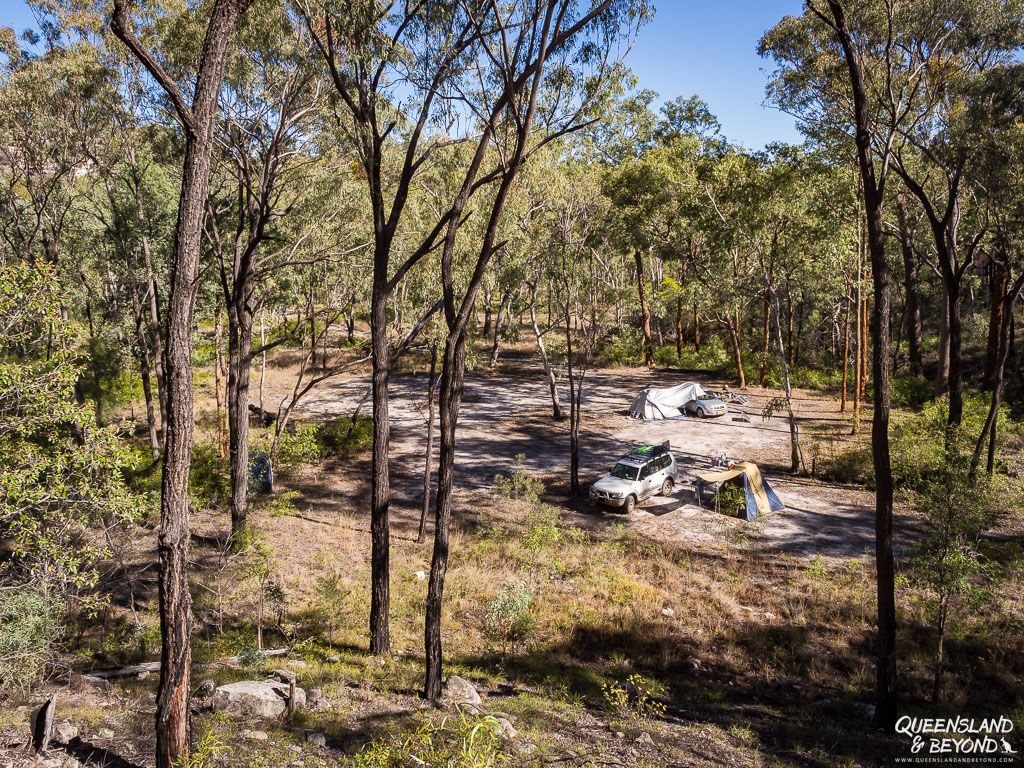
We’re reluctant to examine our personal behaviours, least of all in the wilderness where, to many, a sense of freedom is paramount.
Outdoors queensland
7. REDUCE CAMPFIRES
In Queensland, having a campfire seems to be synonymous with camping. Even in 30-35°C heat, people will light fires. This is a little beyond me as winter seems the only appropriate time for a fire to me but anyways.
Whether you love a fire in summer or winter, be sure you’re actually allowed to light a campfire in the first place. Check whether there are campfire restrictions in the national park and whether there are any current fire bans. Most of us are all too familiar with the devastating effect of bushfires gone out of control.
We had a bushfire raging on Fraser Island for two months leading up to Christmas in 2020, which destroyed half of the island’s protected vegetation (not to mention the horrific fires of the 2019/20 Black Summer).
The Fraser Island bushfire was caused by a campfire that was lit illegally and then left unattended.
I know many people love campfires but given the danger and serious impact, use camping stoves (or off-the-ground braziers) where possible. They are far more sustainable and safer to use.

But if you really love campfires (or run out of cooking fuel as we did on a hiking trip once) and are allowed to have a fire, make sure you’re campfire safe:
- Check for current fire bans.
- Bring your own kindling and firewood, collecting from national parks in Australia is prohibited as dead wood provides habitat for native critters. (But you can generally collect firewood in state forests.)
- Use a fire ring or designated fireplace. If there is none, use a previous fire site, rather than creating a new one.
- Keep the fire small and under control to avoid charring trees or the wind picking up embers.
- Never leave a fire unattended, they can get out of control faster than you can think.
- Ensure that the fire is really out by pouring water on it (your grey water might be useful for that). We’ve actually been able to start fires with the glowing embers left by previous campers.
For more information on being campfire safe, have a read through the campfire and camping information sheet by Queensland Fire and Emergency Services, or check out campfires and cooking by Queensland Parks and Wildlife Service.
FINAL THOUGHTS
Responsible camping is up to all of us so that we can minimise our environmental footprint and enjoy the great outdoors for years to come.
If we don’t take care now, it’s not just the environment that suffers but it’s our mental and physical health and future generations when areas become unusable, get closed or destroyed.
Remember that it’s not so much about rules but about making the best possible decision for yourself, the environment and our future when we’re heading outdoors.
Let’s leave the places we visit how we find them or maybe even better! 🙂
Happy camping,

MORE INFORMATION
Outdoors Queensland has more information on the 7 Leave No Trace principles. Queensland Parks and Wildlife Service also provides more details on camping with care.
SAVE TO PINTEREST
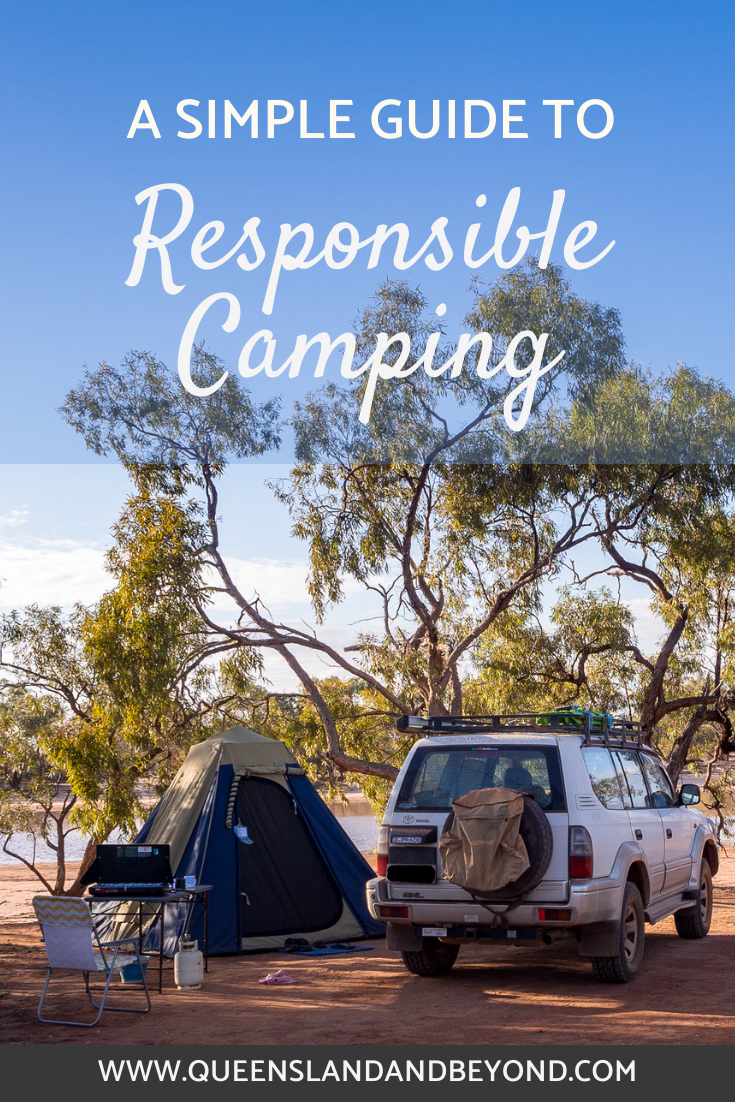



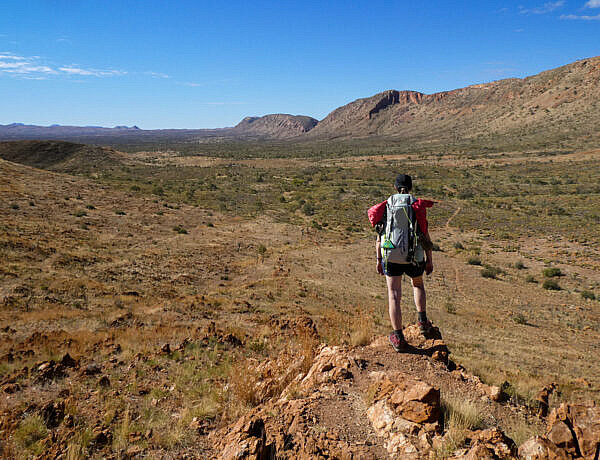

2 Comments
How to Build a Lean-To for Your Tent – Humans For Survival
14 August 2023 at 7:52 PM[…] adhering to these safety considerations, you can create a secure and responsible camping environment, ensuring that your lean-to setup is stable and reliable. Campfire safety practices will help you […]
Ultimate Guide to Camping & Hiking at Lane Cove - Travel Xpress
25 July 2025 at 2:40 PM[…] Following Leave No Trace principles is key when visiting Lane Cove. These rules help us not harm the environment. They tell us to plan, stay on trails, dispose of waste right, and respect animals. For more on Leave No Trace, check out responsible camping guides. […]